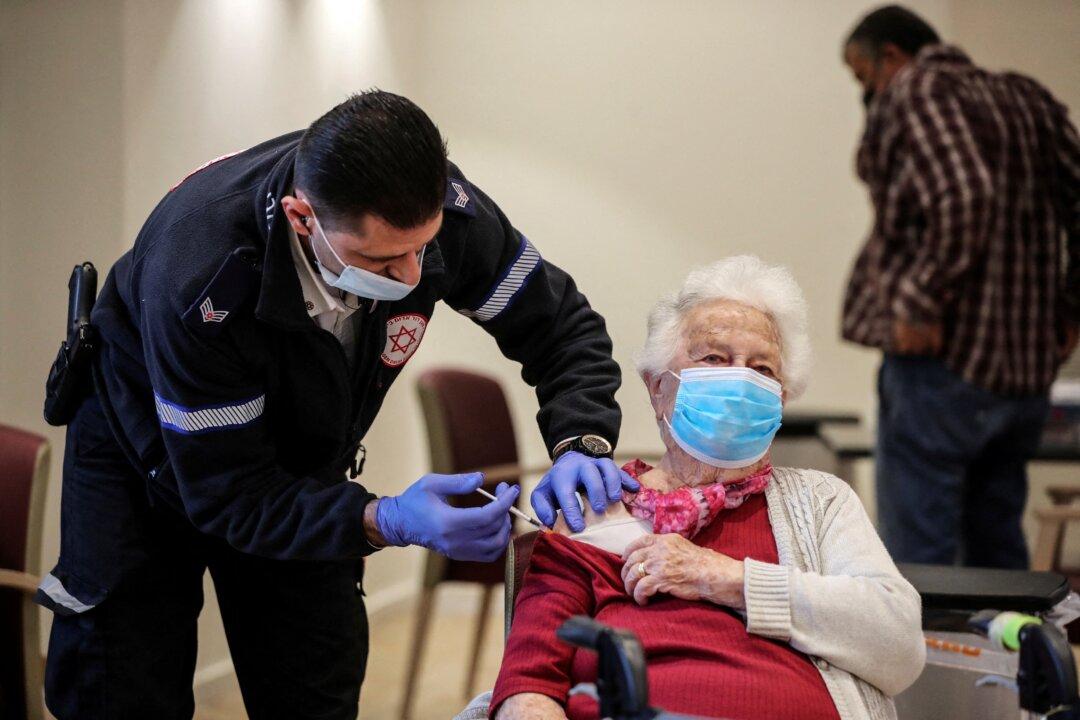A second booster shot of Pfizer’s COVID-19 vaccine induced antibodies but likely not at a level high enough to protect recipients against infection from the Omicron virus variant, Israeli researchers said Monday.
Sheba Medical Center has been studying 150 health care workers who received a second booster, or a fourth shot.





